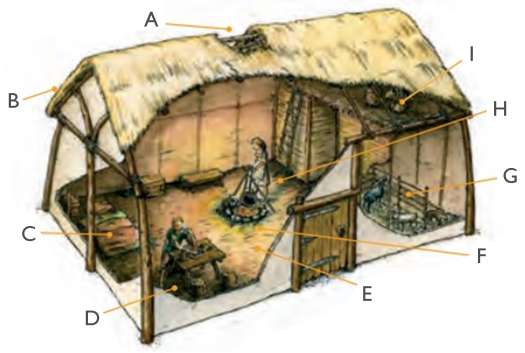Difference between revisions of "Hovel (dwelling)"
From The Authentic D&D Wiki
Jump to navigationJump to searchTao alexis (talk | contribs) m (Tao alexis moved page Hovel to Hovel (dwelling)) |
Tao alexis (talk | contribs) |
||
| Line 3: | Line 3: | ||
== Construction == | == Construction == | ||
| − | The creation of a hovel requires little practical experience, so that characters whose background includes farming and animal husbandry are able to build this sort of structure, as well as those who've studied [[Construction (sage study)|construction]]. | + | The creation of a hovel requires little practical experience, so that characters whose background includes farming and animal husbandry are able to build this sort of structure, as well as those who've studied [[Construction (sage study)|construction]]. Another benefit is that the building can be expanded by adding additional frames following it's initial creation. |
| + | |||
| + | Key is the vertical frame, as shown in the foreground, consisting of a | ||
Revision as of 20:52, 2 December 2022

A: opening in roof to allow smoke to escape and air to enter. B: roof made from thatch. C: beds made from fresh straw and reeds. D: simple furniture, which might include a table, seat and storage box. E: dirt floor covered with bound reeds. F: utensils might include some pottery bowls and jaras and a crockery cooking pot. G: pens for animals kept indoors in winter and when breeding. H: central open fireplace for cooking and warmth. I: storage area in attic.
Hovels are simply-constructed peasant dwellings constructed of rough-hewn wooden poles, wattle, daub and thatch. Such dwellings are distinct to temperate areas, with subtropical and tropical dwellings having other characteristics. Moreover, numerous cultures more nomadic in character do not build permanent structures for daily living.
Construction
The creation of a hovel requires little practical experience, so that characters whose background includes farming and animal husbandry are able to build this sort of structure, as well as those who've studied construction. Another benefit is that the building can be expanded by adding additional frames following it's initial creation.
Key is the vertical frame, as shown in the foreground, consisting of a